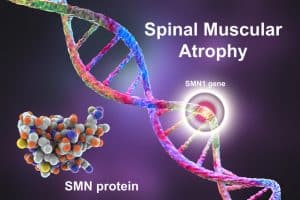FDA clears Iressa of safety concerns
pharmafile | October 28, 2003 | News story | Sales and Marketing |
AstraZeneca's lung cancer drug Iressa has gained US approval after an extended review found the drug to be safe, despite cases of serious and sometimes fatal side-effects.
Iressa was launched in its first market, Japan, in July 2002, but reports linking the drug to 173 deaths due to interstitial pneumonia prompted an investigation by the Japanese Government, and prolonged the FDA's review of the data.
The US authority has now cleared the cancer treatment pill, which is a 'last chance' treatment for patients with terminal lung cancer who have not responded to platinum-based and docetaxel chemotherapy.
The decision has nevertheless attracted controversy, with the Public Citizen consumer group urging the FDA not to approve the drug, claiming it was "likely ineffective and dangerous". It said scarcity of strong data and trial irregularities meant the drug's safety and efficacy profile was not convincing, and predicted it would have to be withdrawn shortly.
But the FDA decision was welcomed by the US Alliance for Lung Cancer Advocacy, Support and Education (ALCASE), which said Iressa offered "real hope" for people with advanced lung cancer.
Iressa (gefitinib) is the first in a new class of cancer drugs, the epidermal growth factor receptors, and does not typically show the severe side-effects seen in cytotoxic chemotherapy. Another late-stage drug in the class, ImClone and Bristol-Myers Squibb's Erbitux (cetuximab) is still in development following its rejection by the FDA in 2001.
Iressa's mechanism is not yet fully understood, but the FDA defended its 'fast track' approval to give patients access to the drug as soon as possible.
"FDA believes it is crucial for cancer patients to have many safe and effective treatment options available to them in their battle against this disease", said FDA Commissioner Dr Mark McClellan. "With the approval of Iressa, thousands of patients with lung cancer will now have access to additional treatment after others haven't worked to stop the progression of the disease".
AstraZeneca has agreed to conduct further studies, with new trials to establish the drug's comparative clinical benefit, understand which patients benefit and evaluate its long-term safety.
Results from two large trials suggested Iressa produced no benefit to patients when added to a platinum-based chemotherapy as a first-line treatment.
The drug has now also been approved in Australia, while a decision is shortly expected from the European Commission, with marketing applications submitted in 12 other countries.
Analysts estimated Iressa will achieve as much as $300 million in global sales this year, with over half from the US. Deutsche Bank says it could reach sales of $1 billion by 2006, with around $700 million of this from US sales, including substantial off-label use in other cancers.
Meanwhile, phase III data from Genentech/Roche's similar drug, Tarceva (erlotinib), tipped to be Iressa's biggest rival, is expected in the second half of 2003.






